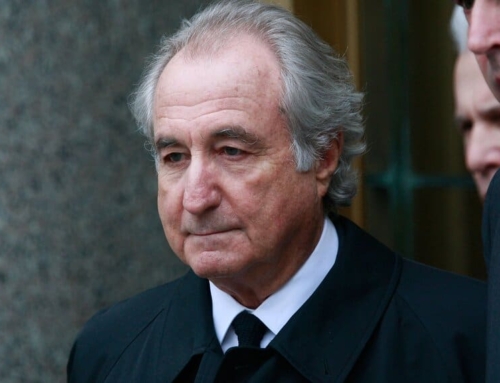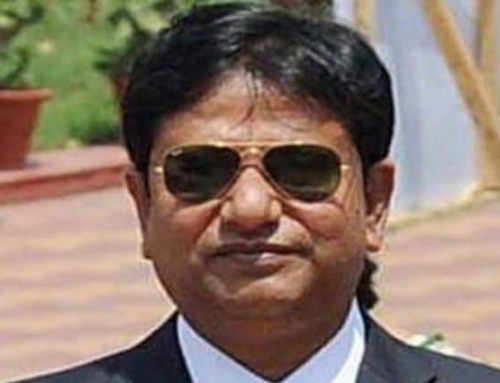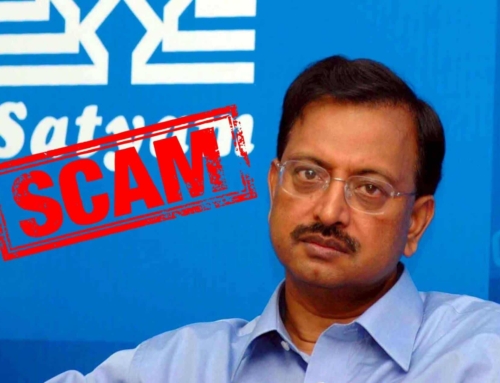IL&FS Scandal
IL&FS which stands for Infrastructure Leasing & Financial Services Limited, is an Indian infrastructure development and finance company. IL&FS was formed in 1987 as an RBI registered Core Investment Company by three of the financial institutions namely Central Bank of India, Housing Development Finance Corporation (HDFC) and Unit Trust of India (UTI). The company’s main objective was to provide finances and loans to major infrastructure development projects.
The IL&FS which was India’s leading infrastructure finance company, defaulted on payment to the lenders, and the amount of dues stands at more than Rs. 91000 crores. The company was involved in the business of giving loans and advances to its group companies and in turn hold investments in those companies. The IL&FS defaulted on payments of interest to lenders more than 7 times and faced a severe liquidity crisis. All the audit companies involved were put to scrutiny and their roles are under probe. Now let us understand the whole matter of the IL&FS scandal.
What is IL&FS and Who owns it?
The IL&FS, which was founded in 1987 and is considered to be the brainchild of late MJ Pherwani. IL&FS is a NBFC ( Non Banking Financial Companies) type, who funds big projects. This type of companies generally borrow money on two basis, one through long term borrowing, which is taken from the bank and other through is short term borrowing, which is debt instrument and is done through issuing bonds, non-convertible debentures (NCDs), certificates of deposits, commercial papers (CPs), mortgages, leases, or others through agreement between a lender and a borrower.
IL&FS has several projects in different sectors including Transportation, Area Development, e-Governance, Health Initiatives, Cluster Development, Finance, Power, Ports, Waters and WasteWater, Urban Infrastructure, Environment, Education and Tourism. The institutional shareholders of IL&FS include Life Insurance Corporation of India (LIC), ORIX (a Japanese Company) and Abu Dhabi Investment Authority, with small shareholding by few of the Indian Banks. The SBI was also one of its shareholders till 2017, after which it sold its stake in the company. IL&FS, being a finance leasing company, was the principal lender behind the construction of the Chenani-Nashri Tunnel, located on the NH44 route in Jammu & Kashmir.
IL&FS has 256 group companies as of 2018, including subsidiaries, joint venture companies and associate entities. Though the company appears to have 23 direct subsidiaries, 141 indirect subsidiaries (including special purpose vehicles for different projects), 6 joint ventures and 4 associate companies, each of them is further subdivided into additional legal entities, with much cross ownership as well as ownership by investment vehicles of various governments.
What is the IL&FS Crisis?
IL&FS has defaulted on its debt obligations from August 2018, triggering a liquidity crisis in the financial services market. IL&FS and its subsidiaries defaulted in payment obligations of long term bank loans (including interest), long term deposits, inter-corporate deposits and short-term deposits and failed to meet the commercial paper redemption obligations and had a total consolidated debt of Rs. 99,354 crores. It has already defaulted on around Rs. 450 crores worth of inter-corporate deposits to Small Industries Development Bank of India (SIDBI) and more were likely to follow this.
The company received notices of delays and default in servicing some of the inter corporate deposits and it was during this time that the rating agencies ICRA and CARE downgraded the ratings of its long term and short term borrowing programs. This did a lot of damage to its name and many corporates, mutual funds and insurance companies also got affected due to this. The equity market also witnessed a liquidity crunch. Since many mutual funds, corporates and insurance companies had invested in the CPs and NCDs of the IL&FS group, they also started to fear that their funds could also get locked in the IL&FS debt instruments and lead to severe liquidity crisis in the financial market.
Since IL&FS funded big infrastructure projects, which took time to get completed and often comes with an additional risk. In general all infrastructure projects typically come loaded with a basket of risks such as natural calamities or some other unforeseen contingencies, delayed/ pending regulatory approvals, escalation of costs beyond the original estimates, the need for mobilizing and servicing of additional debt, inadequate/ slow cash and often a change in the business environment and many more.
Similar was the case with IL&FS, where its project took time to get completed and it was not paid on time and on the other hand, since it had taken too much of funds through short term CPs, NCDs, and was unable to repay the investors back with their interest and money, it started to default. IL&FS Group reported having trouble in paying back loans and inter-corporate deposits to banks and lenders. And this had a huge impact on the overall sector and others NBFCs as well. The share market also witnessed a huge fall, and it created a feeling of scare and hopelessness. The mutual funds who have invested in it, tried to pull its money back. Even various banks were supposed to face the repercussions of this, since IL&FS did not have cash liquidity to pay back its lenders, the bank knew they wouldn’t be able to give back the money which they borrowed from the bank. Hence this entire situation of the IL&FS had a great impact on the Indian economy. And to this entire financial crisis, the Indian government and the RBI acted wisely to prevent the market liquidity crisis that was supposed to follow.
RBI & Government Role to this IL&FS Crisis
From july 2018 to september 2018, the IL&FS and its subsidiaries started to default and were reported having trouble paying back loans and other inter corporate deposits to banks and lenders. This brought RBI into action and the RBI requested its major stakeholders to rescue IL&FS. In July, one of the subsidiaries of the group was facing issues making payments due on its bonds. And in the same month, the founder Mr. Ravi Parthasarathy, left the Group giving reason for medical and health issues. He was managing the company for 30 years and it was a big loss. It was under his supervision that the group grew humongously, and was often considered as a government company since it always partnered with the government projects in the state and the center. Owing to the big defaults, the government and the RBI had a major role to save the economy and the group and one major task was to also build the investors’ trust in the group again.
In September 2018, one of IL&FS’s subsidiaries was unable to repay Rs. 1000 crore short-term loan taken from SIDBI (Small Industries Development Bank of India). And all these situations of defaults led the RBI to probe in this matter and audit the IL&FS group companies. On 27 September 2018, IL&FS Financial Services informed the Bombay Stock Exchange that it had defaulted on a Rs. 52.4 crore repayment of short-term deposits and Rs. 104 crore term deposit.
On 1st October, 2018 the government of India took the control of the company under the guidance of the National Company Law Tribunal (NCLT) and suspended the IL&FS board and appointed a new Board of Directors for the IL&FS group comprising of six members and headed by Mr. Uday Kotak (the MD of Kotak Mahindra Bank), former IAS and tech Mahindra boss Vineet Nayyar, former SEBI chief G N Bajpai, former ICICI Bank Chairman Mr. G C Chaturvedi and former IAS officer Malini Shankar and Nand Kishore. This measure was taken to bring back the confidence of the investors and also to investigate the real issue of the IL&FS default case.
The RBI then tried to infuse money upto Rs. 36000 crores via open market bond purchases, to end the liquidity crisis in the market. And the bigger task was to discover the hidden fact by thorough investigation. The Serious Fraud Investigation Office (SFIO) started an investigation on the group companies.
The Role of the Auditors and Fraud Aspects
IL&FS escaped thorough scrutiny since it positioned itself as a government organization, and also was the favourite partner of the state and central government projects. Since all companies have a statutory auditor, which is governed by the Institute of Chartered Accountants of India and they are supposed to certify that the reports are true.
The auditor for the IL&FS group was Deloitte Haskins & Sells LLP, which was appointed in 2008 and completed 10 years in 2018. And since the 10 years of the period, Deloitte never found any fraudulent activities in the group. And the annual reports said that there were no adverse comments by the auditors for 10 years.
The SFIO highlighted fraud in the IL&FS case, which were based on the following criteria:
- Round Tripping of Loans – an amount of Rs. 2270 crores were involved in the round tripping of loans, where IL&FS lent money to certain companies, and then those companies round tripped those money back to IL&FS Transportation or other IL&FS group companies and this was to show, that IL&FS transportation was doing good.
- Tenure Mismatch – this amounted to a fraud of Rs. 541 crores. when a lending organization gives a short-term loan, it should ensure that the money should be used in a short-term project. And Rs. 541 crores were borrowed for short term purposes, but was utilized for long term needs by 8 entities, SR Shipping, SKIL Infrastructure (headed by close friend of Ravi Parthasarathy and other four board of directors).
- Fudging the Credit Approval Memorandum – this is basically a document on which the company decides to lend money. They had two documents, one was system based and the other one was the manual document. Here there were Rs. 411 crore lending, whose details were completely different in the system-based document and the manual document.
- Lending at a Loss – Rs. 2400 crores were involved, where the IL&FS lent money while at loss. There were 18 instances to show this. Normally the companies lend money at 7-8%, but in a few cases the spread was negative or as low as 2-3%. And the question arises why would any company lend at loss? There could be chances of compulsion from political connections or there could be other compulsions.
- Loan to Defaulter – there were 16 cases involving Rs. 1922 crores, where the management approved loans to companies who had red flags marked by the organization, for instance the SIVA group.
- No Charge against Collateral– generally there is a charge involved while lending money, but here there were none. And the management didn’t bother to check it out, that the collateral offered by the parties are adequate enough to cover the loans, rather they just lent money. Companies to name were GVK Hotels, Bharat Roads and SR Shipping where Rs. 1819 crores were involved with no charge against collateral in 14 cases and in 15 cases it was Rs. 1186 crores.
- Evergreening of Defaulting Accounts – here it amounted to a fraud of Rs. 145 crores as in most cases new loans were given and taken back the same day.
- Funding of Promoters and Directors – in 6 cases amounting to Rs. 94 crores, the IL&FS was giving loans to certain companies and a big chunk of this amount went straight to one of the Directors of the IL&FS group companies. It is a clear case of conflict of interest.
What Happened Next?
This report of scam/fraud came in a one month report of Grant Thornton and very soon the SFIO started its action. And soon two senior executives who were close to the founder Ravi Parthasarathy submitted their resignations from several group companies only on the eve of the submission of a resolution plan. They are namely Vibhav Kapoor, group chief investment officer and Karunakaran Ramchandra, managing director of IL&FS Transportation Networks Ltd. The Enforcement Directorate (ED) arrested Arun Shah and K Ramchandra on June 19, under the Prevention of Money Laundering Act (PMLA), according to reports. Arun Shah was the Joint Managing Director of IL&FS Financial Services while K Ramchandra was the Managing Director of IL&FS Transportation Networks (ITNL).
The SFIO arrested former IL&FS CEO R C Bawa and another former director, Hari Sankaran. And the former chairman of the company, Ravi Parthasarathy could not be taken into custody due to health reasons. The ED registered a case in February under the Prevention of Money Laundering Act (PMLA) against 19 entities including ILFS Rail, ITNL. The registration was followed by searches conducted by the agency in Mumbai and Delhi. The SFIO had later unearthed multiple counts of fraud and criminal conspiracy, after investigation. There were also instances of misreporting, dubious transactions, conflict of interest, and the ever-greening of loans.
This case has also landed its auditors Deloitte Haskins & Sells and BSR & Associates in trouble, for not identifying its problems. The Ministry of Corporate Affairs wanted to ban both the auditors for five years, for their involvement in the scam.
Though the government is doing its best to ensure a proper rescue plan for this financial crisis, there is always a big question on the regulatory bodies and the audit agencies in their working part. This scenario can happen anytime, but a control and checks and a proper audit mechanism can help prevent such cases to happen, where investors feel cheated as its all the Banks’ money, our pension money, our mutual funds money that is involved in the IL&FS scam, and hence quick action is needed to save our own money.
LIC chairman VK Sharma said that as a shareholder we will not let IL&FS collapse and would explore more options to revive the crisis-hit IL&FS.
Howdy!
If you’re here for the first time, let’s get introduced.
VRD Nation is India’s premier stock market training institute and we (Team VRD Nation) are passionate about teaching each and every aspect of investing and trading.
If you’re here for the first time, don’t forget to check out “Free Training” section where we have tons of free videos and articles to kick start your stock market journey.
Also, we got two awesome YouTube channels where you can continue the learning process.
Must-Read Articles
IL&FS Scandal
IL&FS which stands for Infrastructure Leasing & Financial Services Limited, is an Indian infrastructure development and finance company. IL&FS was formed in 1987 as an RBI registered Core Investment Company by three of the financial institutions namely Central Bank of India, Housing Development Finance Corporation (HDFC) and Unit Trust of India (UTI). The company’s main objective was to provide finances and loans to major infrastructure development projects.
The IL&FS which was India’s leading infrastructure finance company, defaulted on payment to the lenders, and the amount of dues stands at more than Rs. 91000 crores. The company was involved in the business of giving loans and advances to its group companies and in turn hold investments in those companies. The IL&FS defaulted on payments of interest to lenders more than 7 times and faced a severe liquidity crisis. All the audit companies involved were put to scrutiny and their roles are under probe. Now let us understand the whole matter of the IL&FS scandal.
What is IL&FS and Who owns it?
The IL&FS, which was founded in 1987 and is considered to be the brainchild of late MJ Pherwani. IL&FS is a NBFC ( Non Banking Financial Companies) type, who funds big projects. This type of companies generally borrow money on two basis, one through long term borrowing, which is taken from the bank and other through is short term borrowing, which is debt instrument and is done through issuing bonds, non-convertible debentures (NCDs), certificates of deposits, commercial papers (CPs), mortgages, leases, or others through agreement between a lender and a borrower.
IL&FS has several projects in different sectors including Transportation, Area Development, e-Governance, Health Initiatives, Cluster Development, Finance, Power, Ports, Waters and WasteWater, Urban Infrastructure, Environment, Education and Tourism. The institutional shareholders of IL&FS include Life Insurance Corporation of India (LIC), ORIX (a Japanese Company) and Abu Dhabi Investment Authority, with small shareholding by few of the Indian Banks. The SBI was also one of its shareholders till 2017, after which it sold its stake in the company. IL&FS, being a finance leasing company, was the principal lender behind the construction of the Chenani-Nashri Tunnel, located on the NH44 route in Jammu & Kashmir.
IL&FS has 256 group companies as of 2018, including subsidiaries, joint venture companies and associate entities. Though the company appears to have 23 direct subsidiaries, 141 indirect subsidiaries (including special purpose vehicles for different projects), 6 joint ventures and 4 associate companies, each of them is further subdivided into additional legal entities, with much cross ownership as well as ownership by investment vehicles of various governments.
What is the IL&FS Crisis?
IL&FS has defaulted on its debt obligations from August 2018, triggering a liquidity crisis in the financial services market. IL&FS and its subsidiaries defaulted in payment obligations of long term bank loans (including interest), long term deposits, inter-corporate deposits and short-term deposits and failed to meet the commercial paper redemption obligations and had a total consolidated debt of Rs. 99,354 crores. It has already defaulted on around Rs. 450 crores worth of inter-corporate deposits to Small Industries Development Bank of India (SIDBI) and more were likely to follow this.
The company received notices of delays and default in servicing some of the inter corporate deposits and it was during this time that the rating agencies ICRA and CARE downgraded the ratings of its long term and short term borrowing programs. This did a lot of damage to its name and many corporates, mutual funds and insurance companies also got affected due to this. The equity market also witnessed a liquidity crunch. Since many mutual funds, corporates and insurance companies had invested in the CPs and NCDs of the IL&FS group, they also started to fear that their funds could also get locked in the IL&FS debt instruments and lead to severe liquidity crisis in the financial market.
Since IL&FS funded big infrastructure projects, which took time to get completed and often comes with an additional risk. In general all infrastructure projects typically come loaded with a basket of risks such as natural calamities or some other unforeseen contingencies, delayed/ pending regulatory approvals, escalation of costs beyond the original estimates, the need for mobilizing and servicing of additional debt, inadequate/ slow cash and often a change in the business environment and many more.
Similar was the case with IL&FS, where its project took time to get completed and it was not paid on time and on the other hand, since it had taken too much of funds through short term CPs, NCDs, and was unable to repay the investors back with their interest and money, it started to default. IL&FS Group reported having trouble in paying back loans and inter-corporate deposits to banks and lenders. And this had a huge impact on the overall sector and others NBFCs as well. The share market also witnessed a huge fall, and it created a feeling of scare and hopelessness. The mutual funds who have invested in it, tried to pull its money back. Even various banks were supposed to face the repercussions of this, since IL&FS did not have cash liquidity to pay back its lenders, the bank knew they wouldn’t be able to give back the money which they borrowed from the bank. Hence this entire situation of the IL&FS had a great impact on the Indian economy. And to this entire financial crisis, the Indian government and the RBI acted wisely to prevent the market liquidity crisis that was supposed to follow.
RBI & Government Role to this IL&FS Crisis
From july 2018 to september 2018, the IL&FS and its subsidiaries started to default and were reported having trouble paying back loans and other inter corporate deposits to banks and lenders. This brought RBI into action and the RBI requested its major stakeholders to rescue IL&FS. In July, one of the subsidiaries of the group was facing issues making payments due on its bonds. And in the same month, the founder Mr. Ravi Parthasarathy, left the Group giving reason for medical and health issues. He was managing the company for 30 years and it was a big loss. It was under his supervision that the group grew humongously, and was often considered as a government company since it always partnered with the government projects in the state and the center. Owing to the big defaults, the government and the RBI had a major role to save the economy and the group and one major task was to also build the investors’ trust in the group again.
In September 2018, one of IL&FS’s subsidiaries was unable to repay Rs. 1000 crore short-term loan taken from SIDBI (Small Industries Development Bank of India). And all these situations of defaults led the RBI to probe in this matter and audit the IL&FS group companies. On 27 September 2018, IL&FS Financial Services informed the Bombay Stock Exchange that it had defaulted on a Rs. 52.4 crore repayment of short-term deposits and Rs. 104 crore term deposit.
On 1st October, 2018 the government of India took the control of the company under the guidance of the National Company Law Tribunal (NCLT) and suspended the IL&FS board and appointed a new Board of Directors for the IL&FS group comprising of six members and headed by Mr. Uday Kotak (the MD of Kotak Mahindra Bank), former IAS and tech Mahindra boss Vineet Nayyar, former SEBI chief G N Bajpai, former ICICI Bank Chairman Mr. G C Chaturvedi and former IAS officer Malini Shankar and Nand Kishore. This measure was taken to bring back the confidence of the investors and also to investigate the real issue of the IL&FS default case.
The RBI then tried to infuse money upto Rs. 36000 crores via open market bond purchases, to end the liquidity crisis in the market. And the bigger task was to discover the hidden fact by thorough investigation. The Serious Fraud Investigation Office (SFIO) started an investigation on the group companies.
The Role of the Auditors and Fraud Aspects
IL&FS escaped thorough scrutiny since it positioned itself as a government organization, and also was the favourite partner of the state and central government projects. Since all companies have a statutory auditor, which is governed by the Institute of Chartered Accountants of India and they are supposed to certify that the reports are true.
The auditor for the IL&FS group was Deloitte Haskins & Sells LLP, which was appointed in 2008 and completed 10 years in 2018. And since the 10 years of the period, Deloitte never found any fraudulent activities in the group. And the annual reports said that there were no adverse comments by the auditors for 10 years.
The SFIO highlighted fraud in the IL&FS case, which were based on the following criteria:
- Round Tripping of Loans – an amount of Rs. 2270 crores were involved in the round tripping of loans, where IL&FS lent money to certain companies, and then those companies round tripped those money back to IL&FS Transportation or other IL&FS group companies and this was to show, that IL&FS transportation was doing good.
- Tenure Mismatch – this amounted to a fraud of Rs. 541 crores. when a lending organization gives a short-term loan, it should ensure that the money should be used in a short-term project. And Rs. 541 crores were borrowed for short term purposes, but was utilized for long term needs by 8 entities, SR Shipping, SKIL Infrastructure (headed by close friend of Ravi Parthasarathy and other four board of directors).
- Fudging the Credit Approval Memorandum – this is basically a document on which the company decides to lend money. They had two documents, one was system based and the other one was the manual document. Here there were Rs. 411 crore lending, whose details were completely different in the system-based document and the manual document.
- Lending at a Loss – Rs. 2400 crores were involved, where the IL&FS lent money while at loss. There were 18 instances to show this. Normally the companies lend money at 7-8%, but in a few cases the spread was negative or as low as 2-3%. And the question arises why would any company lend at loss? There could be chances of compulsion from political connections or there could be other compulsions.
- Loan to Defaulter – there were 16 cases involving Rs. 1922 crores, where the management approved loans to companies who had red flags marked by the organization, for instance the SIVA group.
- No Charge against Collateral– generally there is a charge involved while lending money, but here there were none. And the management didn’t bother to check it out, that the collateral offered by the parties are adequate enough to cover the loans, rather they just lent money. Companies to name were GVK Hotels, Bharat Roads and SR Shipping where Rs. 1819 crores were involved with no charge against collateral in 14 cases and in 15 cases it was Rs. 1186 crores.
- Evergreening of Defaulting Accounts – here it amounted to a fraud of Rs. 145 crores as in most cases new loans were given and taken back the same day.
- Funding of Promoters and Directors – in 6 cases amounting to Rs. 94 crores, the IL&FS was giving loans to certain companies and a big chunk of this amount went straight to one of the Directors of the IL&FS group companies. It is a clear case of conflict of interest.
What Happened Next?
This report of scam/fraud came in a one month report of Grant Thornton and very soon the SFIO started its action. And soon two senior executives who were close to the founder Ravi Parthasarathy submitted their resignations from several group companies only on the eve of the submission of a resolution plan. They are namely Vibhav Kapoor, group chief investment officer and Karunakaran Ramchandra, managing director of IL&FS Transportation Networks Ltd. The Enforcement Directorate (ED) arrested Arun Shah and K Ramchandra on June 19, under the Prevention of Money Laundering Act (PMLA), according to reports. Arun Shah was the Joint Managing Director of IL&FS Financial Services while K Ramchandra was the Managing Director of IL&FS Transportation Networks (ITNL).
The SFIO arrested former IL&FS CEO R C Bawa and another former director, Hari Sankaran. And the former chairman of the company, Ravi Parthasarathy could not be taken into custody due to health reasons. The ED registered a case in February under the Prevention of Money Laundering Act (PMLA) against 19 entities including ILFS Rail, ITNL. The registration was followed by searches conducted by the agency in Mumbai and Delhi. The SFIO had later unearthed multiple counts of fraud and criminal conspiracy, after investigation. There were also instances of misreporting, dubious transactions, conflict of interest, and the ever-greening of loans.
This case has also landed its auditors Deloitte Haskins & Sells and BSR & Associates in trouble, for not identifying its problems. The Ministry of Corporate Affairs wanted to ban both the auditors for five years, for their involvement in the scam.
Though the government is doing its best to ensure a proper rescue plan for this financial crisis, there is always a big question on the regulatory bodies and the audit agencies in their working part. This scenario can happen anytime, but a control and checks and a proper audit mechanism can help prevent such cases to happen, where investors feel cheated as its all the Banks’ money, our pension money, our mutual funds money that is involved in the IL&FS scam, and hence quick action is needed to save our own money.
LIC chairman VK Sharma said that as a shareholder we will not let IL&FS collapse and would explore more options to revive the crisis-hit IL&FS.



















Leave A Comment